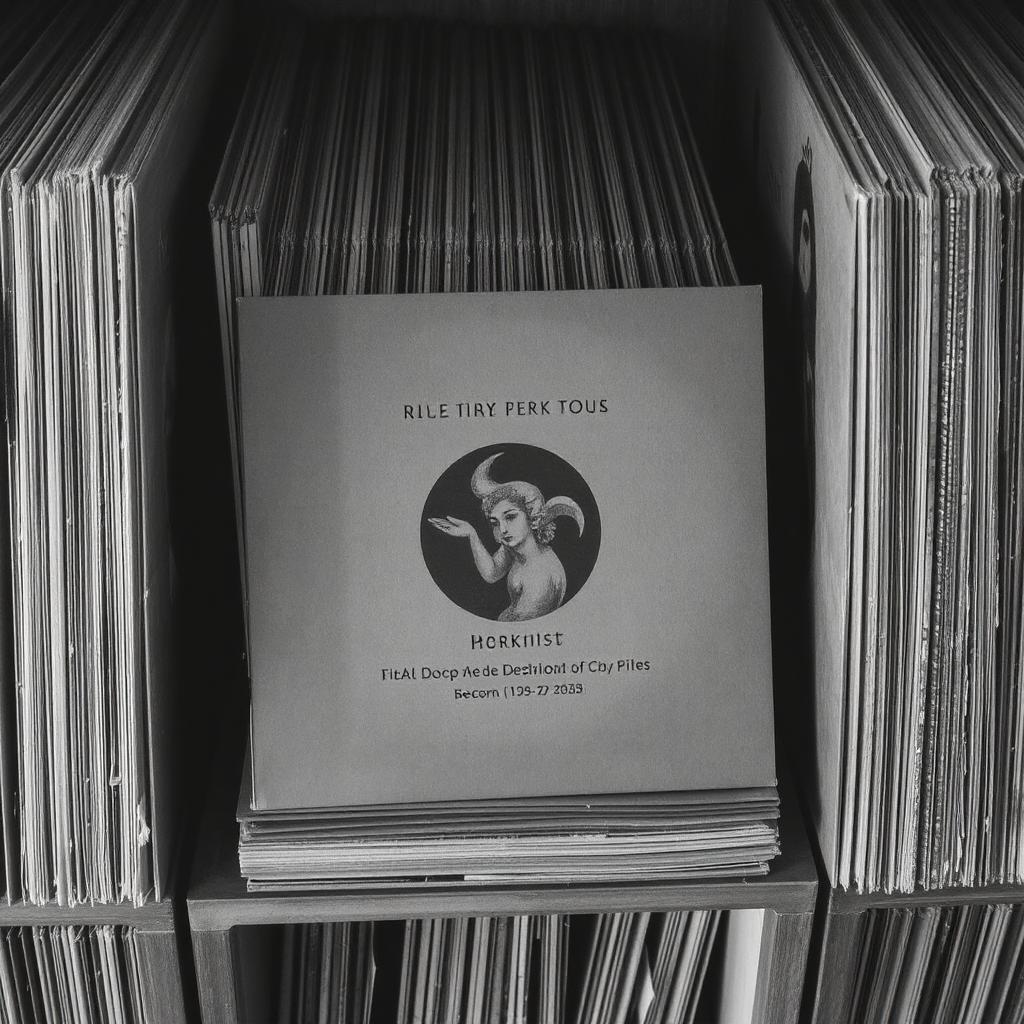How to Grade Punjabi Vinyl for Online Sales

As the global demand for vintage Punjabi vinyl continues to grow, more collectors and sellers are turning to online platforms like Discogs, eBay, and Instagram to sell their records. However, selling vinyl online isn’t just about listing the album title and uploading a few photos. One of the most critical aspects of successful vinyl sales is accurate grading. For buyers, especially those who can’t inspect the record in person, the grade helps them determine value, condition, and authenticity. For sellers, proper grading builds trust and reduces disputes, returns, or negative feedback.
If you're selling Punjabi vinyl records online, understanding how to professionally grade your records is essential. This blog offers a detailed guide to help you accurately assess and describe your vinyl, using the universally recognized Goldmine grading system.
Understanding the Goldmine Grading Standard
The Goldmine standard is the most widely used vinyl grading system in the world. It includes separate grades for the vinyl record itself and the album cover. Each grade reflects the condition in terms of appearance and playback quality.
Here are the key grades:
Mint (M)
The record is brand new, possibly sealed, and has never been played. The cover is flawless. This is extremely rare for vintage Punjabi records, especially those from the 1960s–80s.
Near Mint (NM or M-)
The record may have been played once or twice and shows no visible signs of wear. It sounds perfect with no surface noise. The cover looks clean, with no splits or markings. This is the highest grade realistically achievable for most used records.
Very Good Plus (VG+)
The vinyl has some light marks or scuffs that do not affect playback. There may be slight background noise in quiet sections. The cover might show slight wear or discoloration but remains solid and intact. This is a desirable grade for most collectors.
Very Good (VG)
The record has more visible wear and some background noise or occasional clicks. The cover shows more obvious signs of age—ring wear, small tears, or writing. Still, it's playable and enjoyable, especially for rare albums.
Good (G) / Good Plus (G+)
The record plays through without skipping but has lots of surface noise, pops, and visible scratches. The cover may be heavily worn, split, or stained. Only acceptable if the record is very rare or valuable historically.
Poor (P) / Fair (F)
The record is badly damaged, scratched, or warped. It may skip, and the cover may be falling apart. These are often only kept for artwork or archival interest.
How to Grade the Vinyl Record
- Inspect Under Light
Hold the vinyl under a bright light to check for scratches, warping, or cloudiness. Use a magnifying glass if needed. Light hairline marks are acceptable in VG+ records, but anything deeper might reduce the grade. - Play-Test the Record
Whenever possible, listen to both sides. Check for background noise, skips, or distortion. Describing how the record plays is just as important as how it looks. - Label Condition
Note if the label is clean, has spindle marks, or is stained or written on. Mention these in your description, as collectors value label condition.
How to Grade the Sleeve (Cover)
- Front and Back Appearance
Check for ring wear, fading, or artwork damage. Ring wear is common in older Punjabi vinyl but still affects the grade. - Spine and Edges
Look for splits, fraying, or dents along the spine and edges. Even small tears can drop a cover’s grade. - Stickers and Writing
Many vintage Punjabi LPs have price tags, name stamps, or pen marks. Always mention these, especially if they appear on the front cover or label. - Inner Sleeves and Inserts
If the original inner sleeve, booklet, or lyric insert is included, note it. Missing extras may lower the value, especially for collectors looking for complete editions.
Photography Tips for Listings
Clear photos help support your grading and attract serious buyers. Include:
- Front and back cover
- Close-ups of labels on both sides
- Any damage, writing, or stickers
- Inner sleeve or insert if included
Always use natural lighting or a well-lit indoor space, and avoid harsh flash or shadows.
Describing Your Grading in Listings
When listing your record, be honest and specific. A good example might read:
"VG+ vinyl with a few light scuffs, plays clean with minimal background noise. VG sleeve with slight ring wear and minor edge wear, no splits. Original EMI India pressing with blue label. Includes original lyric insert."
Transparency builds buyer trust and helps reduce returns or disputes later.
Why Proper Grading Matters
Incorrect or exaggerated grading damages your reputation as a seller. Collectors, especially those buying rare Punjabi LPs, rely heavily on condition details when spending premium amounts. Over-grading not only leads to refund requests but can also result in negative reviews that impact future sales.
On the other hand, accurate and honest grading shows professionalism, earns repeat customers, and sets you apart in the competitive world of vinyl sales.
Conclusion
Grading Punjabi vinyl records for online sale is both an art and a responsibility. With proper inspection, listening, and transparent descriptions, you can ensure that your listings reflect the true value of each record. Whether you’re selling classic folk albums, devotional LPs, or 1980s Bhangra gems, learning to grade like a pro is key to building trust and growing your presence in the global vinyl market.
Bollywood Vinyl Records Classical Vinyl Records Devotional Vinyl Records Dialogue Vinyl Records Dj Remix Vinyl Records English Vinyl Records Film Hits Vinyl Records Ghazals Vinyl Records Instrumental Vinyl Records Non Filmi LP Records Punjabi Vinyl Records Rare Vinyl Records Online Vinyl Shop Online Chardham Hotels in chardham
- Art
- Causes
- Crafts
- Dance
- Drinks
- Film
- Fitness
- Food
- الألعاب
- Gardening
- Health
- الرئيسية
- Literature
- Music
- Networking
- أخرى
- Party
- Religion
- Shopping
- Sports
- Theater
- Wellness


